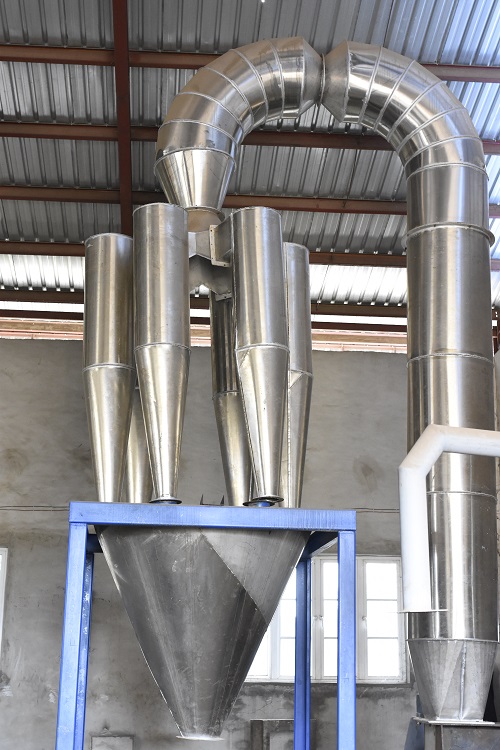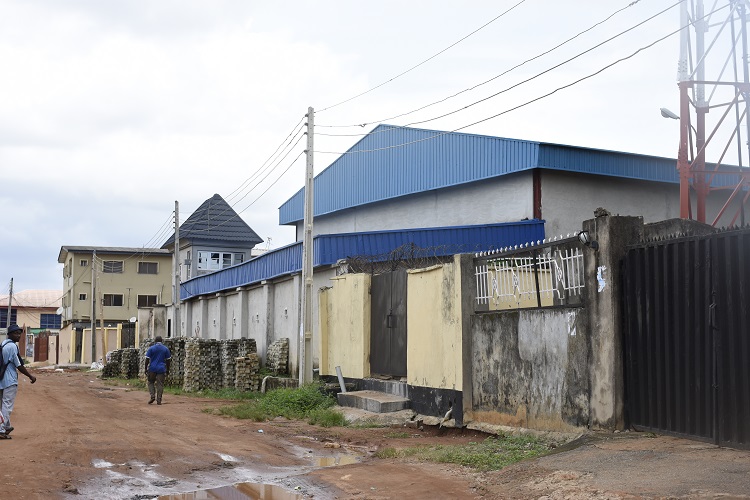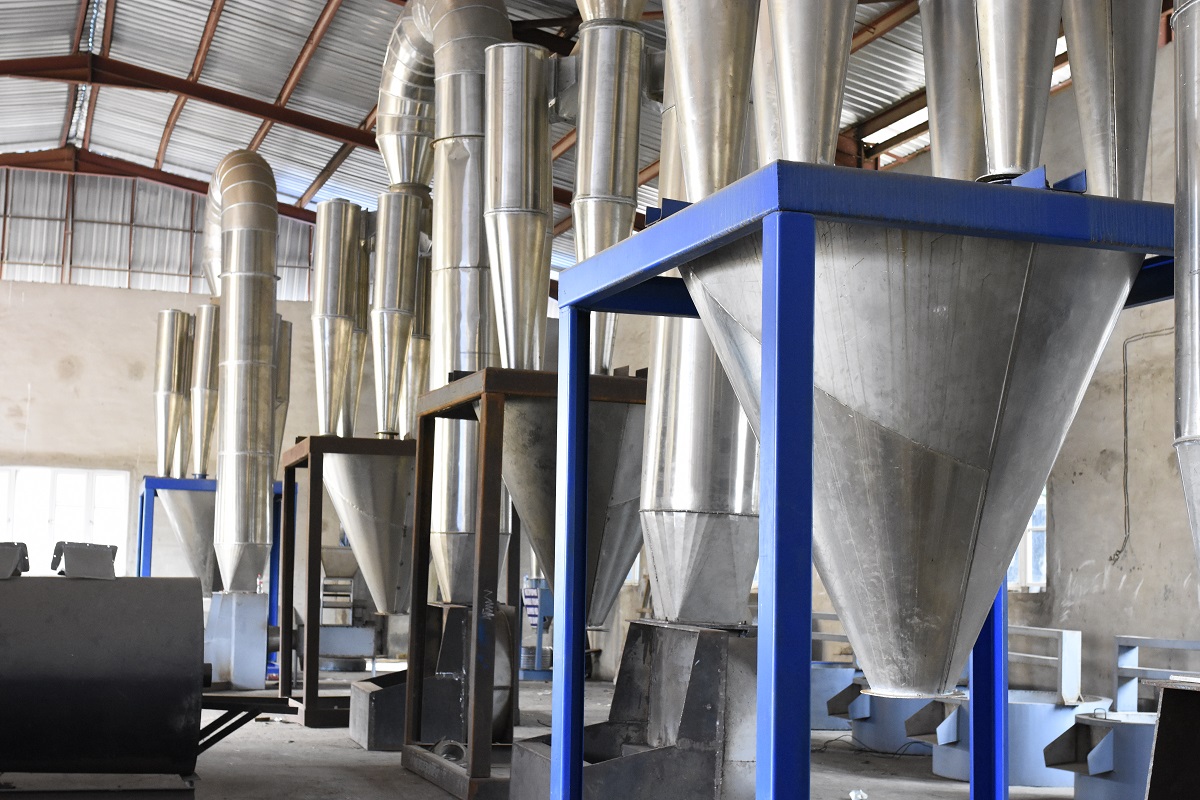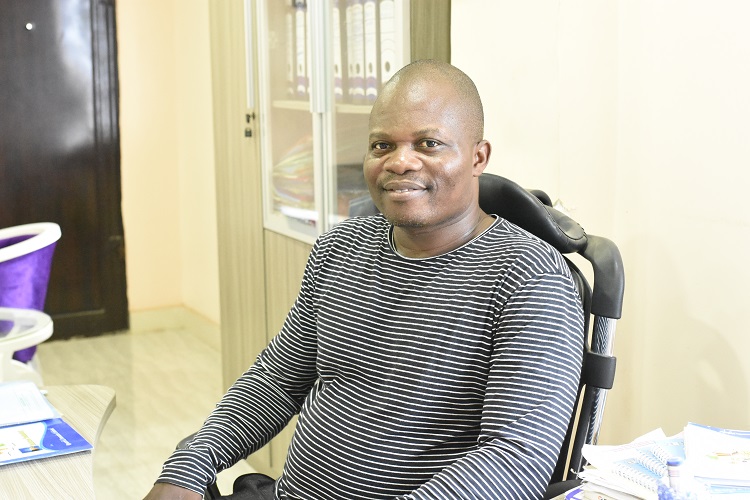One of the ways CAVA2 supports smallholders is by offering farmers more ‘avenues for sales’ for their cassava roots. To ensure a smooth flow of roots from farm to product, CAVA2 works with SMEs to expand and develop processing capacity; a key issue is the availability of quality equipment and after sales service. ‘Nobex Technical Company Limited’ is a Nigerian manufacturer that has specialised in equipment for drying and roasting cassava.
At the Nobex company offices in Idimu, north-west of Lagos, we were greeted by the Managing Director, Idowu Adeoya, or ‘Mr Nobex’ as he’s known. “CAVA and CAVA2 really exposed us to international markets,” said Mr Adeoya. “We had not exported any equipment before CAVA,” he continued. “In CAVA we first exported a machine to Malawi and since then they’ve been using the machines. With CAVA2 we’ve installed another two machines in Uganda, and we are about to take another journey back to Tanzania.” Nobex has also successfully exported machines to Benin, Cote d’Ivoire, Ghana, Liberia, and Sierra Leone, with further installations in Nigeria. Mr Adeoya attributes this success to the achievements from CAVA and CAVA2.
One of the machines that Nobex fabricates is a ‘flash dryer’, so called because it dries agricultural products almost instantaneously. Mr Adeoya recalled how, in 2006, he was first contacted by specialists from the Federal University of Agriculture, Abeokuta (FUNAAB) led by the Country Manager of CAVA Nigeria, Prof. Lateef Sanni, and a food processing specialist from NRI, Dr Andrew Graffham, from the Natural Resources Institute (NRI), University of Greenwich, uk. As part of a FUNAAB-NRI collaboration, they had encountered a Nobex flash dryer at a factory in Akure, 300km from Lagos. The team was interested in collecting some data about the dryer, in order to look into its efficiency. Mr Adeoya welcomed Dr Graffham’s interest and some months later he was visited by NRI agricultural engineering specialist, Dr Andrew Marchant.

Using the improved design, Nobex fabricated the machines, and together with Dr Marchant, they carried out test runs and troubleshooting until they were ‘right’. Improvements included: reduced fuel usage from 374 to 65 litres per tonne of dried product, increased output from approximately 100kg an hour to around 330kg an hour of dried product, and increased efficiency, from 11 to 55 percent. Since then, machines based on this design have been exported to eight countries in Africa, with multiple sales in Nigeria including a contract of 40 units to the Nigerian Ministry of Agriculture through the Bank of Industry for use in SMEs.

Building on CAVA2’s experience and progress with Nobex in Nigeria, a complementary initiative is taking shape in Ghana, with the development of a new, fuel-efficient flash dryer on a smaller scale. Using a participatory technology development approach, NRI’s Dr Marcelo Precoppe, a Crop Postharvest Technologist with expertise in the engineering design process, worked closely with an equipment manufacturer and a cassava processor to begin production of the next generation of flash dryers, initially for the Ghanaian market, where this type of dryer had not previously been adopted.
The CAVA2 project ran from 2014–2019 with the aim of improving the lives of smallholder farmers across five countries in Africa: Nigeria, Ghana, Uganda, Tanzania and Malawi. Supported by the Bill & Melinda Gates Foundation, CAVA2 was led by Nigeria’s Federal University of Agriculture, Abeokuta (FUNAAB) and NRI. The project’s focus was to develop the value chains of cassava, the tropical root crop that’s a staple food for millions of people across Africa. Once harvested, the crop needs to be processed quickly, for fresh cassava roots begin to deteriorate 72 hours after harvest. Other challenges include increasing yield, managing pests and diseases, and transporting the bulky roots by road.

